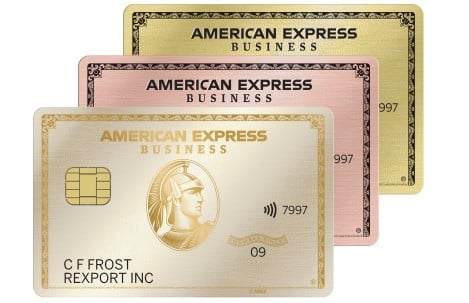Fix and Flip Loans: What They Are and Best Options
You can get a fix and flip loan from a variety of sources, but the right option depends on your qualifications and the needs of your real estate project.
Many, or all, of the products featured on this page are from our advertising partners who compensate us when you take certain actions on our website or click to take an action on their website. However, this does not influence our evaluations. Our opinions are our own. Here is a list of our partners and here's how we make money.
Concerned about tariffs?
Many small-business owners are under increased economic stress and uncertainty following the latest tariff announcements. NerdWallet is here to help you find answers for whatever you're looking for. Here are some resources to help you get started:
Need emergency funding? Consider a business line of credit.
Looking for fast access to working capital? Discover the best working capital loans.
Want tips on how to mitigate the impact of tariffs? Read our guide.
What is a fix and flip loan?
A fix and flip loan is short-term financing that real estate investors use to buy and renovate a property in order to resell it for a profit, a process known as house flipping.
These small-business loans are typically used to purchase residential real estate, finance renovations and improvements, as well as cover additional expenses associated with listing and selling the property.
How much do you need?
We’ll start with a brief questionnaire to better understand the unique needs of your business.
Once we uncover your personalized matches, our team will consult you on the process moving forward.
How does a fix and flip loan work?
Fix and flip loans can be structured in different ways, such as a term loan or line of credit, depending on your lender and financing needs. These loans are typically secured by the property you’re purchasing and renovating. Often there’s no penalty if you want to pay off the loan balance early.
To determine the amount of funding you’re eligible to receive for your loan, fix and flip lenders may use a number of formulas including the loan-to-value ratio, loan-to-cost ratio and after-repair value.
The loan-to-value ratio (LTV) — often used for standard commercial real estate loans — compares your loan amount to the value of the property. The maximum LTV available for fix and flip loans is typically 90%. For example, if you’re buying a $100,000 property, a lender who provides 90% LTV will lend you $90,000. You have to provide the remaining $10,000 as a down payment.
In contrast, the loan-to-cost ratio (LTC) compares the loan amount to the total cost of the project. Total costs may include the purchase price of the real estate, renovation costs and miscellaneous costs. For example, if your total project cost is $120,000 ($100,000 to purchase the property plus $20,000 to renovate) and a lender offers up to 80% LTC, you’d receive $96,000 in loan funds. The remaining $24,000 would be up to you to provide. The maximum LTC available depends on the lender, but some offer loans up to a 90% LTC or higher.
Finally, after-repair value (ARV) is an appraiser’s estimate of the property’s value after renovations are finished. For example, if a lender offers 70% ARV, it will lend a maximum of $140,000 on a home that will be worth $200,000 after repairs.
» Also consider: Should you use a DSCR loan for your rental property?
Types of fix and flip loans
Loan type | Best for |
|---|---|
Business line of credit | Experienced flippers looking for flexible financing. |
Hard money loans | Borrowers who prefer a quick option or who can’t secure another form of financing. |
Home equity loan/home equity line of credit | Homeowners who have more than 15% equity in their primary residence. |
Personal loans | House flippers with good personal credit who need a relatively small amount of funding. |
401(k) loans | House flippers with established retirement savings who aren’t close to retirement age and have exhausted other options. |
Seller financing | Flippers who can find a seller willing to work with them and don’t have other financing options. |
Because fix and flip loans are not your typical home loan, finding financing at a traditional bank may be challenging. Also, while SBA loans can be used to purchase commercial real estate for your business, they typically aren’t an option for the purchase of residential property for resale.
Business lines of credit
Established house flippers may use a business line of credit to fund projects. A business line of credit gives you access to a specific amount of money that you can draw from as needed. And you only pay interest on the funds you use.
Because of the flexibility a business line of credit offers, this type of fix and flip loan is a good option when you’re unsure of how much renovations may cost or how long a renovation may take.
Secured business lines of credit require collateral such as property or other assets, whereas unsecured lines of credit don’t. Lenders will look at your credit score, time in business and business financials to determine whether you qualify.
Business lines of credit are available from traditional and online lenders, but banks and credit unions will offer the most competitive rates and terms. You’ll need excellent credit, several years in business and strong financials to get a business line of credit from a bank.
Hard money loans
Hard money loans are nonbank loans from online or private business lenders, such as Finance of America Commercial and Kiavi. Some online crowdfunding platforms offer hard money loans where multiple investors pool their money to fund your project.
Hard money lenders generally have flexible eligibility requirements and can provide fix and flip loans as quickly as one-two weeks. Although some may require borrowers be set up as LLCs, partnerships or corporations.
Repayment terms on these loans can range from six months to three years, depending on the lender, your qualifications and the details of your project. Although hard money lenders will look at your credit and financial history when evaluating your application, they tend to prioritize the potential of your property, making these fix and flip loans a good option for beginners and those with less-than-perfect credit.
As a result, hard money lenders may charge higher interest rates than traditional lenders who don’t specialize in fix and flip loans.
💡 Nerdy insight
With high interest rates and short repayment terms, hard money loans can be risky. As an alternative, you might look into more traditional term loans from online lenders. These lenders can also offer flexible qualifications and fast access to funds.
Home equity loan or home equity line of credit
A home equity loan or home equity line of credit can give you access to capital based on the value of your personal residence. A home equity loan, or HEL, offers a lump sum amount of funding, whereas a home equity line of credit, or HELOC, allows you to draw from the credit line — up to the limit — as needed.
To qualify for a home equity loan or line of credit, you should have at least 15% equity in your home, good credit and enough monthly income to afford your mortgage payments and pay off the HEL or HELOC.
Terms on home equity loans generally range from five to 20 years, whereas lines of credit often have draw periods of 10 years followed by repayment periods of 20 years. The amount you’re able to borrow for a HEL or HELOC will vary based on the value of your home, what percentage of that value the lender will allow you to borrow against and how much you still owe on your mortgage.
For example, if you have a house valued at $300,000 with an existing $180,000 mortgage, the LTV on your home is 60%. If a bank extends home equity loans up to 85% LTV, you are 25% below the limit and may be able to get a loan of $75,000 ($300,000 x 25%).
Home equity loans and lines of credit can offer fix and flip funding with low interest rates, but you’ll have to own a home and be willing to put your personal finances at risk.
» MORE: Compare the best HELOC lenders
Personal loans
When you take out a personal loan for your business, it can typically be used for a wide range of purposes, including a house-flipping project. Personal loans have competitive interest rates and terms that generally range from one to seven years.
Compared to mortgage loans, however, personal loans tend to have smaller amounts, often maxing out around $100,000. You’ll also need good personal credit to qualify for this type of fix or flip loan. And, if you default on the loan, you could put your personal assets and credit history at risk.
401(k) loans
If your retirement plan allows loans, you may choose to use your 401(k) to finance your fix and flip project. This type of funding isn’t a good option for anyone approaching retirement age, but it may be worth considering for younger flippers.
Most employer 401(k) accounts let you take a loan of up to 50% of the balance or $50,000, whichever is less. Solo 401(k) plans for self-employed individuals also allow loans of up to $50,000. You pay interest on the loan, but there’s no prepayment penalty for repaying the loan early. Typically, 401(k) loans must be repaid within five years.
You can easily be approved for 401(k) financing, but this fix and flip loan option has drawbacks. Pulling money from your retirement fund puts your retirement savings at risk. For example, if you leave your job, you could be required to pay back the loan amount in full. And if your fix and flip project fails, you’ll have lost that retirement money. You’ll want to weigh the benefits and risks before choosing this financing route.
Seller financing
Seller financing, also called owner financing, is when the home's seller acts as the lender. You’ll generally make payments to the seller, with interest, based on an agreed schedule. You and the seller will negotiate a price for the cost of the project.
Some sellers may structure the financing as a short-term loan with low initial payments and then a large payment of the remaining balance — often referred to as a balloon payment — at the end of the term. If you can’t repay the remainder of the loan, the seller can repossess the property.
You should work with a lawyer to help you draft an official business loan agreement to make sure that you have all the terms and conditions in writing and that there are no misunderstandings between you and the seller.
Seller financing can be a good option if you can’t qualify for other types of fix and flip loans. It can also be a fast financing choice — if you can find a seller who's willing to work with you.
This type of financing may be more expensive because sellers are looking to be compensated for taking on the risk of financing your purchase of their property.
How to get a fix and flip loan
Fix and flip loans can be difficult to access, especially when you’re a beginner in the industry. As you build experience, you’ll have an easier time qualifying for the most competitive loan options.
Here are three steps to get the right fix and flip loan for your business.
1. Understand your financing needs
You should gather all the information about your fix and flip project and create a scope of work and plausible timeline in order to accurately estimate costs. After you have a sense of how much your project will cost, you’ll be able to figure out how much business capital you need.
2. Evaluate your qualifications
Once you have a better sense of how much financing you'll need, you can evaluate your credentials — time in business, annual revenue, personal credit score — to determine what fix and flip loans you’ll qualify for.
If you’re a fix and flip beginner, you’ll likely have to rely more heavily on your personal credit and financial history to access financing. More experienced flippers will be able to use their house-flipping portfolios and business financials to secure a loan.
3. Compare lenders
The best lender for your fix and flip loan will vary depending on the type of financing you need, the details of your project and your qualifications, among other factors. You should research and compare multiple small-business lenders to find the one with the most competitive rates and terms.
It may be helpful to consult with other house flippers to discuss their experience with financing and get recommendations or ask questions about lenders. Ideally, the lender you choose will have experience in the house-flipping industry and will be able to show you examples of work they have done with other borrowers.
Your local Real Estate Investors Association or club may be another good resource for meeting investors and finding access to reliable lending partners.
➡️ Next steps
If you need access to funds that you can tap into repeatedly over the life of your project, consider a business line of credit.
If you have good personal credit and don't need a large amount of financing, explore the best personal loans for business.
If you don't want to take out traditional business funding, learn about asking your network for a friend and family loan.
Priyanka Prakash contributed to an earlier version of this article, which was first published on Fundera, a subsidiary of NerdWallet.






